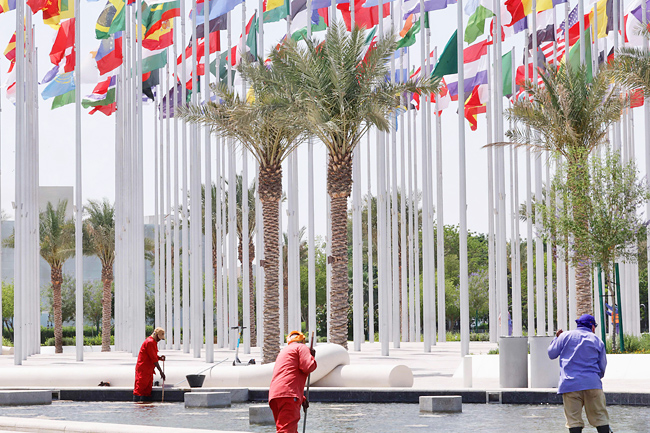DOHA (AFP) – Rising global temperatures are increasing the risk of workers dying or becoming disabled from labouring in extreme heat, an international conference has been told.
The conference, held in Qatar as spring temperatures raced towards 40 degrees Celsius (°C), heard that tens of thousands of workers around the world have died from chronic kidney disease and other illnesses linked with extreme heat over recent decades.
“Science tells us that all countries can do more,” the International Labour Organization’s regional chief for Arab countries, Ruba Jaradat, told the Occupational Heat Stress conference, which focussed on climate change and how rising temperatures threaten workers’ health.
Last year’s World Cup in Qatar drew attention to workers toiling in temperatures that can top 50°C during the summer peak in countries across the Gulf.
Since 2021, Qatar has banned outdoor working between 10am and 3.30pm from June 1 to September 15.
Its reforms have been praised by the United Nations (UN) labour agency, though some experts said more can be done.
There is no international standard for temperatures for outdoor working, but climate change has forced new scrutiny.
The US administration promised new rules in 2021 after a deadly heatwave and the White House said that “heat is the nation’s leading weather-related killer”. Nothing has been produced yet, however.
Europe has also seen devastating heatwaves. But apart from Qatar, Cyprus is one of the rare countries to have restricted working hours, ordering extra breaks and heat protective clothing when temperatures rise above 35°C.
Extreme heat and sun radiation unleash heatstroke, kidney, heart and lung diseases and raise cancer rates, according to researchers.
Head of La Isla Network Justin Glaser, an occupational health group, said more than 20,000 sugar workers in Central America had died in a single decade from chronic kidney disease.
He pointed to about 25,000 deaths from kidney disease in Sri Lanka.




















































